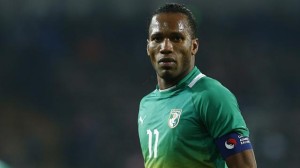Ivory Coast’s ‘Golden Generation’: Struggling to Etch Their Legacy
For over a decade, the so-called golden generation of the Ivory Coast — the Elephants — has wrestled with the question: why can’t this talented group leave a lasting mark on African and world football?
Despite boasting a squad brimming with individual brilliance, the team’s trophy cabinet remains disappointingly sparse. Since the early 2000s, the Elephants have experienced five unsuccessful Africa Cup of Nations (CAN) campaigns, punctuated only by two heartbreaking final defeats in 2006 and 2012. Meanwhile, their World Cup outings have ended prematurely, never progressing beyond the group stage.
Football, as Didier Drogba recently reflected in an interview with the Ivorian Football Federation, is partly governed by fortune. “I would say success. We played two CAN finals that we lost on penalties,” the legendary striker noted. Yet, can luck alone explain the Elephants’ repeated near-misses?
History remembers champions, not runners-up. Many critics question whether the Ivorian team has truly been competitive, a sentiment dating back to the Henri Michel era. The lone exception was the 2006 CAN, where Didier Drogba’s squad unexpectedly dazzled with a blend of commitment, solidarity, and clinical efficiency.
Since then, inconsistency has plagued the Elephants. Numerous coaching changes have failed to solve deeper problems. Sabri Lamouchi’s recent tenure exposed the challenges facing the team’s technical staff. Despite his credentials, the Franco-Tunisian coach has struggled to command authority or unify the squad. His decision to omit striker Seydou Doumbia from the 2014 World Cup roster ignited public outcry, with many perceiving the move as punitive rather than tactical — a reflection of fractured team dynamics.
Solidarity, a cornerstone of any successful team, has often been elusive for Ivory Coast. Drogba acknowledged the impact of internal discord: “At many other times, we also lacked unity within the team.” Reports of ego clashes and factionalism have undermined cohesion, turning hope into frustration season after season.

As the Elephants prepared for the 2014 World Cup in Brazil, the Ivorian Ministry of Sports and Football Federation rallied fans and players alike around a “sacred union.” Social media platforms buzzed with messages of support and optimism — ambitions ranged from simply progressing past the group stage to dreams of reaching the semi-finals.
However, for the Elephants to realize their potential and rewrite their narrative, the demons of disunity and inconsistency must be firmly kept at bay throughout the tournament.











